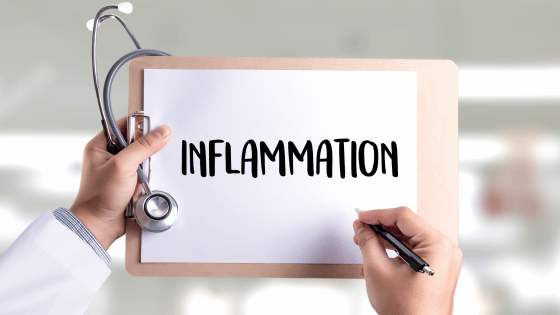Introduction
In our fast-paced, modern lives, stress has become an almost unavoidable companion. While stress is a natural response to life’s challenges, its impact on our health is profound and far-reaching. One area of particular interest is its connection to autoimmune diseases. Emerging research suggests that chronic stress can influence the development and progression of these conditions, shedding light on the intricate link between our mental state and physical well-being.
Living with an autoimmune disease presents unique challenges, and adopting the Autoimmune Protocol (AIP) can be transformative for managing symptoms and promoting overall well-being. Alongside dietary adjustments, stress reduction plays a critical role in supporting individuals with autoimmune conditions on their AIP journey.
In this blog post, we will explore the importance of stress reduction as a vital component of the AIP lifestyle. Additionally, we will introduce the STRESS RESTORATION Framework, which provides a structured approach to incorporating stress management into your daily routine. When we grasp the scientific mechanisms in action, we can level up our understanding of stress management and how it seriously impacts things like reducing inflammation, boosting our immune system, supporting our mental well-being, and effectively handling autoimmune diseases.
The Link between Stress and Autoimmune Disease
Autoimmune diseases occur when the immune system mistakenly attacks healthy cells and tissues in the body. Examples of autoimmune diseases include rheumatoid arthritis, lupus, multiple sclerosis, and psoriasis, among others.
Stress has a significant impact on autoimmune diseases. Stress is a natural response of the body to various challenges, whether they are physical, emotional, or psychological. When we experience stress, the body releases stress hormones, such as cortisol, to prepare for a fight-or-flight response. While this response is essential for short-term survival, chronic or prolonged stress can have detrimental effects on the immune system, overall health and can contribute to the development and exacerbation of autoimmune conditions.
The reason for this is that stress activates the body’s inflammatory response, triggering immune system imbalances and potentially leading to increased disease activity. Therefore, managing stress becomes essential for individuals with autoimmune disease to minimize symptoms and promote healing.
Here are a few ways in which stress may influence autoimmune diseases:
- Inflammatory response: Stress can trigger an inflammatory response in the body. Inflammation is a key component of autoimmune diseases, and chronic inflammation can worsen the symptoms and progression of these conditions.
- Immune dysregulation: Chronic stress may disrupt the normal functioning of the immune system, leading to an imbalance in immune responses. This dysregulation can contribute to the development or exacerbation of autoimmune diseases.
- Barrier disruption: Stress can weaken the body’s natural barriers, such as the intestinal barrier and the blood-brain barrier. These barriers play a crucial role in maintaining immune system balance and preventing the entry of harmful substances. When they become compromised, it may trigger or worsen autoimmune responses.
- Epigenetic changes: Stress can cause epigenetic modifications, which are changes in gene expression that do not involve changes in the DNA sequence. These modifications can influence the immune system’s behavior and potentially contribute to autoimmune disease development.
- Lifestyle factors: Stress can also indirectly affect autoimmune diseases through lifestyle factors. For example, individuals under chronic stress may engage in unhealthy coping mechanisms like poor diet, lack of exercise, inadequate sleep, or increased substance abuse. These behaviors can further weaken the immune system and worsen autoimmune symptoms.
Stress Reduction and the Autoimmune Protocol
The Autoimmune Protocol (AIP) is a science-based elimination diet that removes potentially inflammatory foods and emphasizes nutrient-dense whole foods. While diet is a fundamental aspect of the AIP, stress reduction is equally important. The AIP recognizes that stress can be a trigger for autoimmune flares and focuses on empowering individuals to adopt stress reduction techniques as part of their healing journey.
Importance of Stress Reduction on the AIP Journey
- Immune Regulation: Chronic stress can disrupt the immune system, leading to increased inflammation and autoimmune activity. By reducing stress, individuals on the AIP journey can help regulate their immune response and potentially decrease disease activity.
- Symptom Management: Autoimmune diseases often present with a wide range of symptoms, including fatigue, pain, and mood disturbances. Stress reduction techniques such as relaxation exercises, meditation, and mindfulness can alleviate these symptoms, enhancing overall well-being.
- Gut Health: AIP focuses on healing the gut, as it plays a vital role in autoimmune conditions. Chronic stress can impair gut function and contribute to gut dysbiosis. By reducing stress, individuals support their gut health and optimize the effectiveness of the AIP.
It’s important to note that stress alone is unlikely to cause an autoimmune disease. The development of these conditions usually involves a combination of genetic predisposition, environmental triggers, and immune system dysregulation. However, stress can act as a potential trigger or exacerbating factor for autoimmune diseases in susceptible individuals.
Introduction to The Autoimmune STRESS RESTORATION Framework
The STRESS RESTORATION Framework offers a valuable roadmap for you to help manage autoimmune diseases. This framework provides a structured approach to making daily choices that promote stress reduction, enhance overall well-being, and support the management of autoimmune conditions. By following the principles of the STRESS RESTORATION Framework, you can empower yourself to take control of your health and lead a more balanced and fulfilling life.
STRESS
S – Support System: Cultivate a strong support system of family, friends, and healthcare professionals who can provide emotional support, understanding, and guidance during challenging times.
T – Time for Rest: Prioritize regular rest and relaxation to allow your body and mind to recharge. Schedule breaks throughout the day and create a soothing bedtime routine to ensure sufficient restorative sleep.
R – Regular Exercise: Engage in regular physical activity tailored to your abilities and limitations. Exercise can help reduce stress, improve mood, and boost overall well-being.
E – Emotional Well-being: Take care of your emotional well-being by engaging in activities that bring you joy and fulfillment. This could include practicing mindfulness, pursuing hobbies, or seeking therapy when needed.
S – Stress Reduction Techniques: Explore and practice stress reduction techniques such as deep breathing exercises, progressive muscle relaxation, or guided imagery. These techniques can help alleviate stress and promote relaxation.
S – Sleep: Prioritize getting enough quality sleep each night. Sleep is crucial for the restoration of your body and mind. Establish a consistent sleep routine, create a comfortable sleep environment, and practice good sleep hygiene to ensure restful sleep.
RESTORATION
R – Relaxation Practices: Incorporate relaxation practices into your routine, such as yoga, meditation, or taking soothing baths. These activities can help reduce stress levels and foster a sense of calm.
E – Eating Well: Maintain a balanced and nutritious diet that supports your immune system and overall health. Focus on consuming whole foods, staying hydrated, and avoiding triggers that may worsen your symptoms.
S – Self-Care: Prioritize self-care activities that promote physical and mental well-being. This can include engaging in hobbies, practicing good hygiene, pampering yourself, and setting healthy boundaries.
T – Time Management: Effectively manage your time and prioritize tasks to minimize stress and avoid overexertion. Break tasks into smaller, manageable steps and delegate when possible to maintain a balanced lifestyle.
O – Open Communication: Maintain open communication with your healthcare team, sharing any concerns or changes in symptoms. Effective communication ensures that you receive appropriate care and support.
R – Relaxation Rituals: Establish relaxation rituals that help you unwind and find peace, such as listening to calming music, journaling, or spending time in nature. Engaging in these rituals regularly can help manage stress.
A – Awareness of Triggers: Identify and be aware of the triggers that exacerbate your autoimmune symptoms. This awareness allows you to avoid or minimize exposure to these triggers, reducing stress on your body.
T – Time for Joy: Make time for activities that bring you joy and laughter. Engaging in pleasurable experiences can boost your mood, relieve stress, and improve overall quality of life.
I – Individualized Approach: Recognize that managing stress with autoimmune disease is a unique journey for each person. Experiment with different strategies and tailor your stress management techniques to suit your needs.
O – Optimistic Mindset: Cultivate a positive and optimistic mindset, focusing on the possibilities and silver linings in your life. Positive thinking can improve resilience and help you navigate stress more effectively.
N – Nurturing Relationships: Surround yourself with positive and supportive relationships. Foster connections with individuals who uplift and encourage you, providing a sense of belonging and emotional well-being.
As you embark on your journey of managing autoimmune disease, the STRESS RESTORATION Framework becomes your guiding compass. By recognizing the impact of stress on your condition and implementing the strategies outlined in this framework, you have the power to take control of your well-being. Remember, this is your unique journey, and by embracing the STRESS RESTORATION Framework, you can navigate the challenges with resilience and grace. Allow this framework to be your roadmap towards finding balance, reducing stress, and restoring your vitality. Trust in the process and know that you have the strength within you to thrive on this path of healing and empowerment.
If you are looking for more tips and support, join me over on my group page, The Village – A Natural HEALing Community, to get tons of information and tips to help you take your HEALTHY EATING and ACTIVE LIVING to the next level.
REFERENCES:
- Slominski, A. T., Zmijewski, M. A., & Skobowiat, C. (2013). Psychological stress as a trigger for autoimmune diseases: an overview of current evidence and implications for future research. Frontiers in Immunology, 8, Article 117. https://www.ncbi.nlm.nih.gov/pmc/articles/PMC5371710/
- Elenkov, I. J., & Chrousos, G. P. (1999). Stress and autoimmune inflammatory disease. Neuroimmunomodulation, 6(2), 94-106. https://pubmed.ncbi.nlm.nih.gov/23538383/
- Stojanovich, L., & Marisavljevich, D. (2008). Stress and the immune system in the etiology of autoimmune disease. Autoimmunity Reviews, 7(3), 209-213. https://www.ncbi.nlm.nih.gov/pmc/articles/PMC3608296/
MORE RELATED POSTS:







+leave a comment . . .